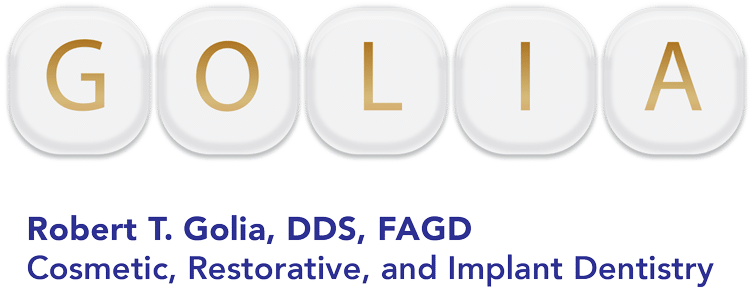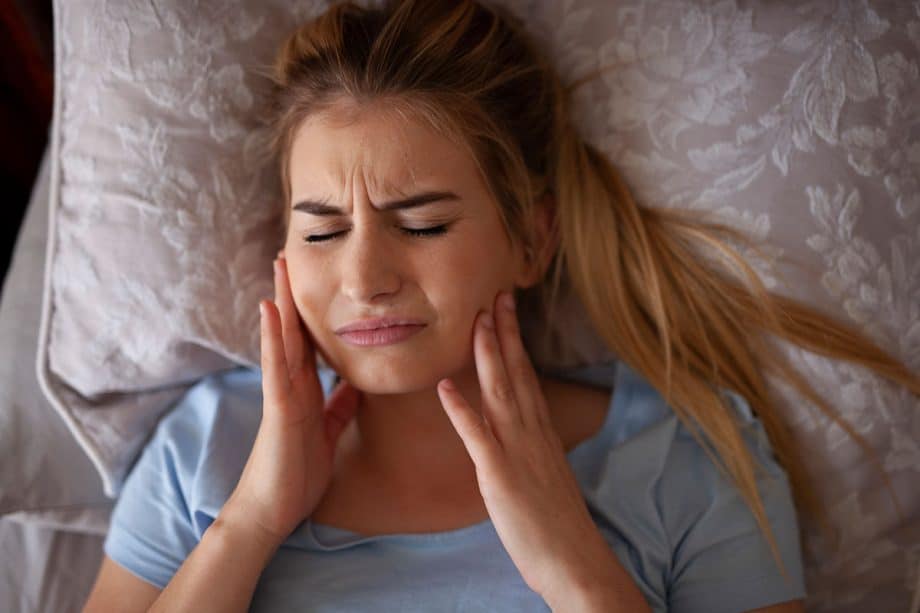In dentistry, we have a special term for teeth grinding: bruxism. It’s one of those words that somehow sounds exactly like what it describes. You can practically feel your molars grind together when you say it! Bruxism may not seem like a serious issue, but it can cause a whole host of dental complications when left untreated. Here’s what you need to know about teeth grinding.
Symptoms of Teeth Grinding and Jaw Clenching
There are two types of teeth grinding: awake bruxism and sleep bruxism. Even if you grind your teeth when you’re awake, you often don’t realize that you’re doing it—you may simply catch yourself staring at your computer at work with clenched teeth or notice that your jaw feels sore after a particularly stressful day.
Sleep bruxism can be even more difficult to diagnose—sometimes your partner can hear you grinding your teeth at night, but more commonly, the tell-tale sign of nighttime jaw clenching is waking up with headaches and jaw pain every morning.
Other symptoms of teeth grinding include:
- Teeth that are damaged—fractured, chipped, flat, or even loose
- Tooth pain or sensitivity due to enamel erosion
- Sore jaw, neck, and facial muscles
- Poor sleep
- Sores on the insides of your cheeks
Teeth grinding and TMJ disorder are closely related; patients also often experience teeth grinding with sleep apnea.
Causes of Teeth Grinding
There are many causes and risk factors at play when it comes to bruxism. It’s thought that bruxism can be genetic—with sleep bruxism in particular, we see that when one family member has it, there’s usually a family history involved. This makes sense because sleep bruxism is believed to be a sleep disorder.
Stress, anger, frustration, and anxiety contribute to both awake and sleep bruxism. Many people feel these emotions physically as tension in the body, and this tension causes the jaw to clench. Some people even clench their jaws when they’re concentrating.
Teeth grinding can be a side effect of some antidepressants; caffeine, tobacco, and alcohol use can also aggrevate jaw clenching.
Teeth Grinding Treatments
The simplest treatment for teeth grinding would be to address the underlying causes, but telling patients to reduce their stress is easier said than done—most of us would lead less stressful lives if we could! While relaxation exercises, yoga, cutting down on caffeine, and other lifestyle changes can certainly help, the most effective strategy for treating teeth grinding and jaw clenching is to physically prevent it from occurring.
We do this with a simple dental appliance called a night guard or splint, which acts as a physical barrier to keep you from clenching your jaw. These are very effective for sleep bruxism. Treating awake bruxism can be more complicated—you can wear a night guard when you’re at home, try to be more mindful of your jaw clenching and stop yourself from doing it (biofeedback therapy can help with this), or consider Botox injections to relax the jaw muscles.
Learn More About Teeth Grinding
Do you suspect that you grind your teeth at night? Are your teeth flat or damaged and you’re not sure why? Contact us today at 203-248-7400 to schedule an appointment for an evaluation.

